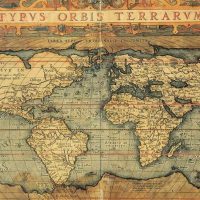Category: History Essay Examples
See our collection of history essay examples. These example essays are to help you understanding how to write a history essay. History is a fascinating puzzle with both personal and cultural significance. The past informs our lives, ideas, and expectations. Historians study the past to figure out what happened and how specific events and cultural developments affected individuals and societies. Also, see our list of history essay topics to find the one that interests you.
The Hyksos were foreign rulers of Egypt who seized power and ruled Lower (northern) Egypt. Contradictory dates and king lists, as well as gaps in the records, render their history elusive, but the Hyksos were most likely Palestinian. The combined efforts of Egyptian kings Seqenenre, Kamose, and Ahmose …
From its foundation by Augustus Caesar in 27 b.c.e., the Roman Empire saw a tendency to treat the emperor as a divine being. This phenomenon was neither completely government imposed nor entirely a spontaneous upwelling of devotion from the people of the empire. The divinization of the emperor …
Indo-Europeans are representatives of a language family now widely distributed all over the world, with primary concentration in Europe, the Middle East, and northern Asia. Sir William Jones, who emphasized the similarity of Sanskrit, Greek, Latin, Celtic, and the German language, introduced the term Indo-European in 1786. Primarily …
The Indus civilization is also called the Indus empire or Harappan civilization; the last name derives from Harappa, the first site of this civilization excavated by modern archaeologists. Many similarities and striking homogeneity through the region warrant classifying the entire culture under one name. Its dates are approximately …
From the beginning the Jewish scriptures focus on the Patriarchs Abraham, Isaac (Ishmael), Jacob, and Joseph. The reason for this attention is that from them came the “covenant,” the divine choice that favors the people of the Bible. Abraham was promised the land of Canaan (present-day Israel). His …
Jainism is one of the world’s great religions. It was started in India during the Axial Age by the religious reformer Nataputta Vardhamana Mahavira. Like Gautama Buddha, with whom he was a contemporary, he was from a noble warrior family and also rejected the Vedas and the formalism …
Jerome was a scripture scholar, translator, ascetic, spiritual adviser, church father, and Doctor of the Church. Jerome was born Eusebius Hieronymus into a prosperous Christian family at Stridon in Dalmatia. At age 12 he was sent to Rome to study the liberal arts under the famed grammarian Aelius …
The independent evidence—apart from the New Testament—that Jesus actually lived falls into three categories: Jewish, Greco-Roman, and Jewish-Christian writings outside the Bible. Jewish evidence, surprisingly, is rather sparse. First of all, there are no contemporary archaeological or epigraphic remains that prove Jesus’ existence. What research has found corroborates …
Josephus best tells the first military struggle of the Jews against Rome in his Jewish War history, but a background history can be ascertained from the New Testament and the Pseudepigrapha. Both sources tell of a fractured political and religious society, at first ruled by a local ruler …
Job (c. 600–400 b.c.e.) is the principal character of the biblical book that bears his name. A prologue introduces the book’s readers to Job and describes decisions made in a parallel universe, that of a celestial court in which Yahweh, the head of the pantheon according to ancient …
One of Judaism’s divergent voices raised in the turbulent first century c.e. was that of John the Baptist. He is most known for his role in the life of Jesus (Christ) of Nazareth as reported in the New Testament. But the writings of Josephus make clear that John …
The Jomon culture of Japan was a pottery-using Neolithic or Mesolithic society that flourished approximately 10,500–300 b.c.e. Most archaeologists accept a division into six periods within Jomon culture, which are the incipient, initial, early, middle, late, and final periods. The term Jomon means “cord mark” and was coined …
There is no historical account for the period that saw the emergence of Christianity and Judaism from the land of Palestine like that of Josephus. For one thing no Greco-Roman historian so directly and immediately addresses the struggle between Roman Empire and Jewish commonwealth. For another thing there …
The writer of the biblical book of Kings rates Josiah as the highest of all the kings of Judah after David. He is known primarily as a religious reformer, but his vision of Judah motivated political changes, foreign-policy changes, and a measure of reunification with the northern kingdom …
Traditional Jews maintain that Judah ha-Nasi (Judah the Prince) was the sole editor of the Mishnah. This explanation assumes that there was an unbroken line of rabbinic thinking beginning from Hillel (a famous rabbi from the early first century c.e.) and proceeding through Yohanan ben Zakkai and Akiba …
After Solomon, king of united Israel and Judah, died c. 922 b.c.e., the northern 10 tribes seceded and reconstituted themselves as the kingdom of Israel. The Assyrians took its capital, Samaria, in 722 b.c.e. The Jewish scriptures states that the Israelites there were deported and replaced by foreigners …
Israelite history between the Exodus and the crowning of the first king Saul is the period of the Judges. Strictly speaking, the leaders of Israel during this time are better described in modern language as “champions” or “heroes,” and they are not altogether different from the heroes and …
A target of the later fathers of the church and a hero of the Greco-Roman pagan romantics, Julian the Apostate generated literary reaction out of proportion to his tenure as Caesar. It is debatable what his vision of a return to religion of the Greeks and Romans really …
The Julio-Claudian emperors of ancient Rome were from the family of Julius Caesar—or rather his sister Julia, and that of the first husband of the wife of Augustus Caesar, Tiberius Claudius Nero. They include the emperor Augustus Octavian; (31 b.c.e.–14 c.e.), Tiberius (14–37 c.e.), Caligula (37–41 c.e.), Claudius …
Justinian was born to a nonaristocratic family in the Balkans. His uncle Justin served in the imperial bodyguard and rose to become its commanding officer and then emperor from 518 to 527 c.e. Justin promoted and adopted his talented nephew and proclaimed him coemperor in 527. Two years …


